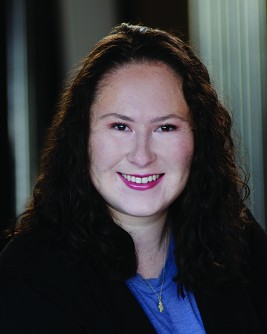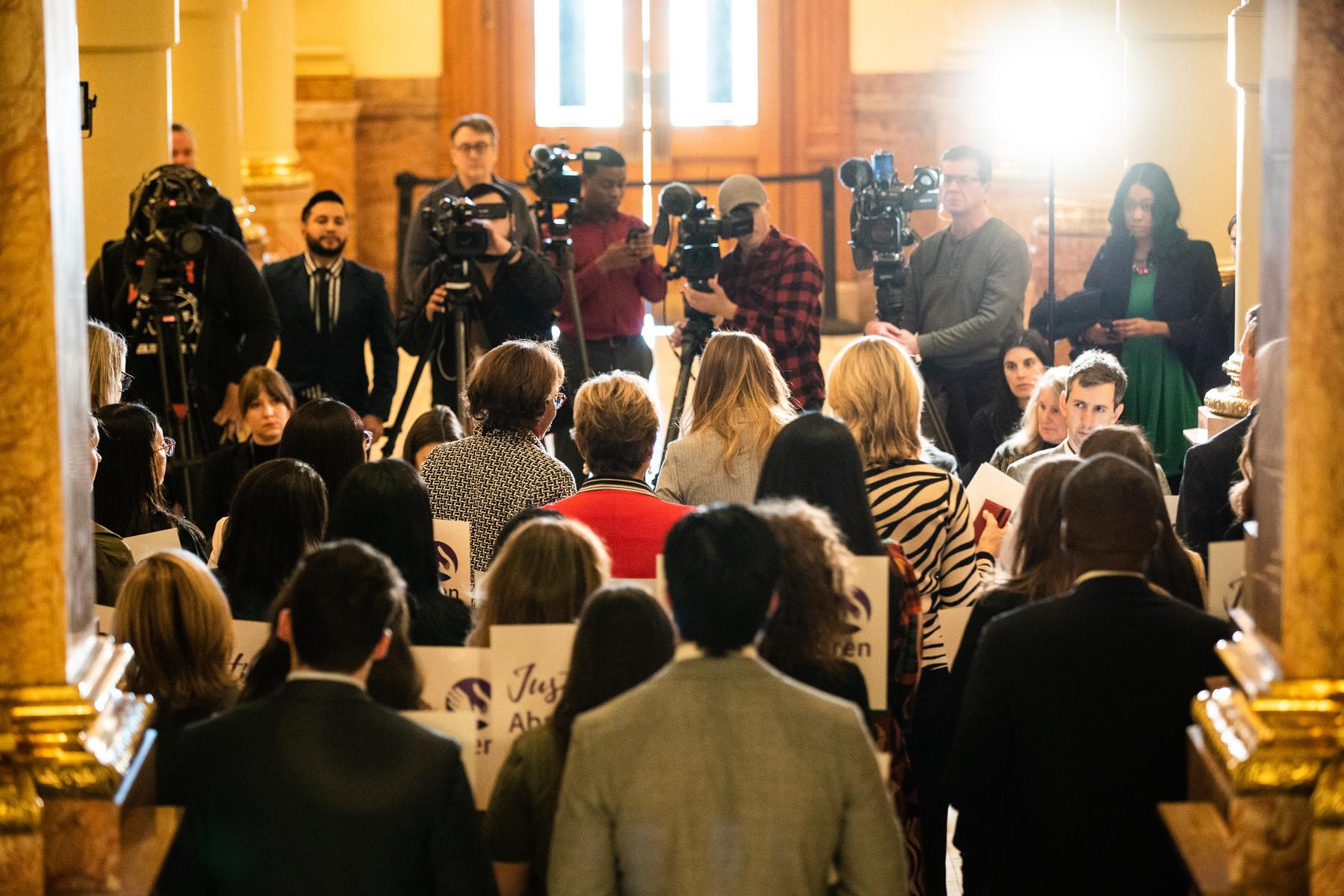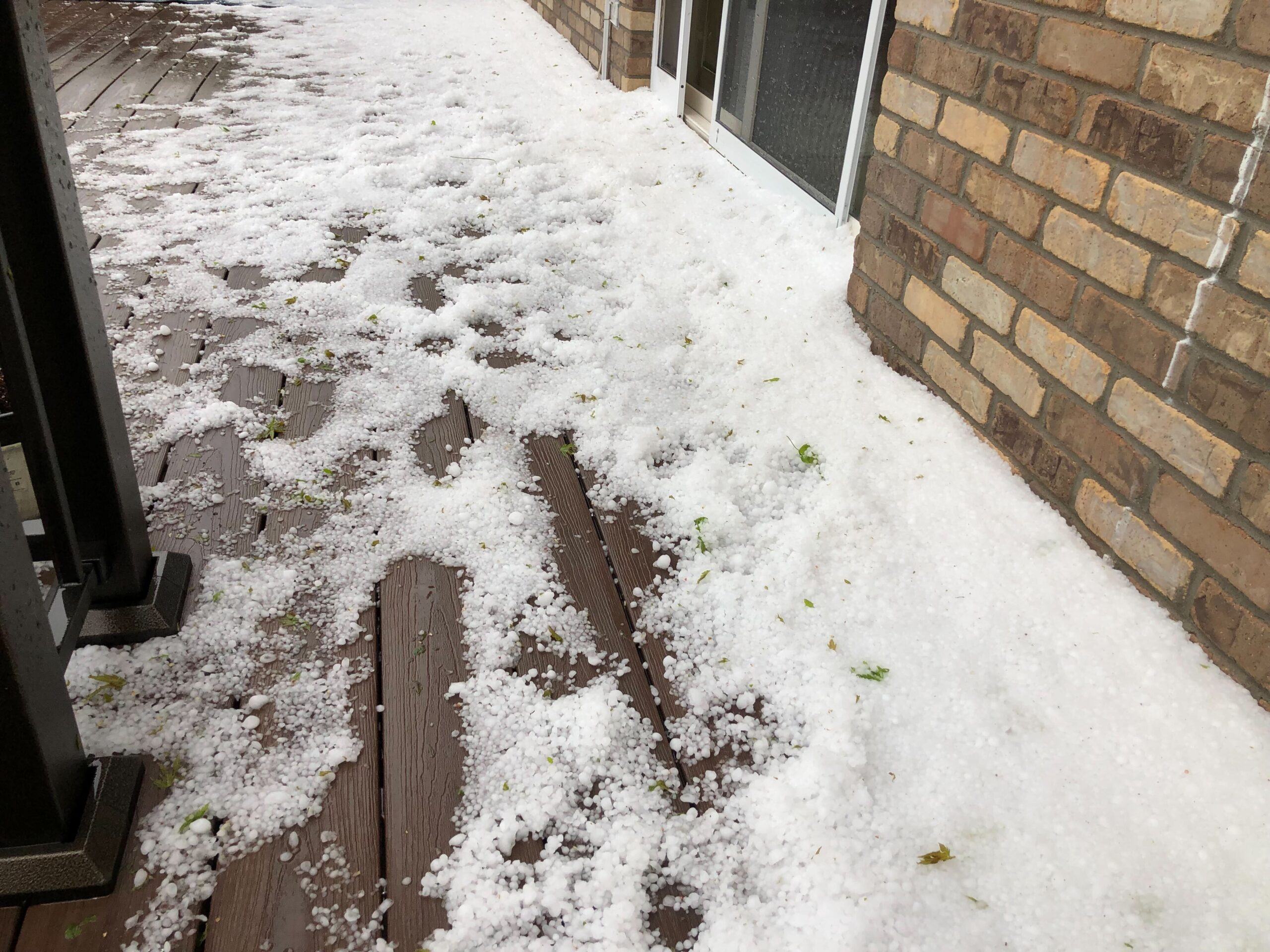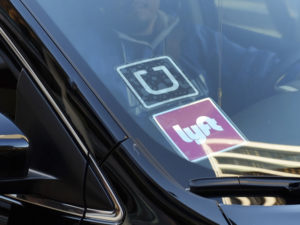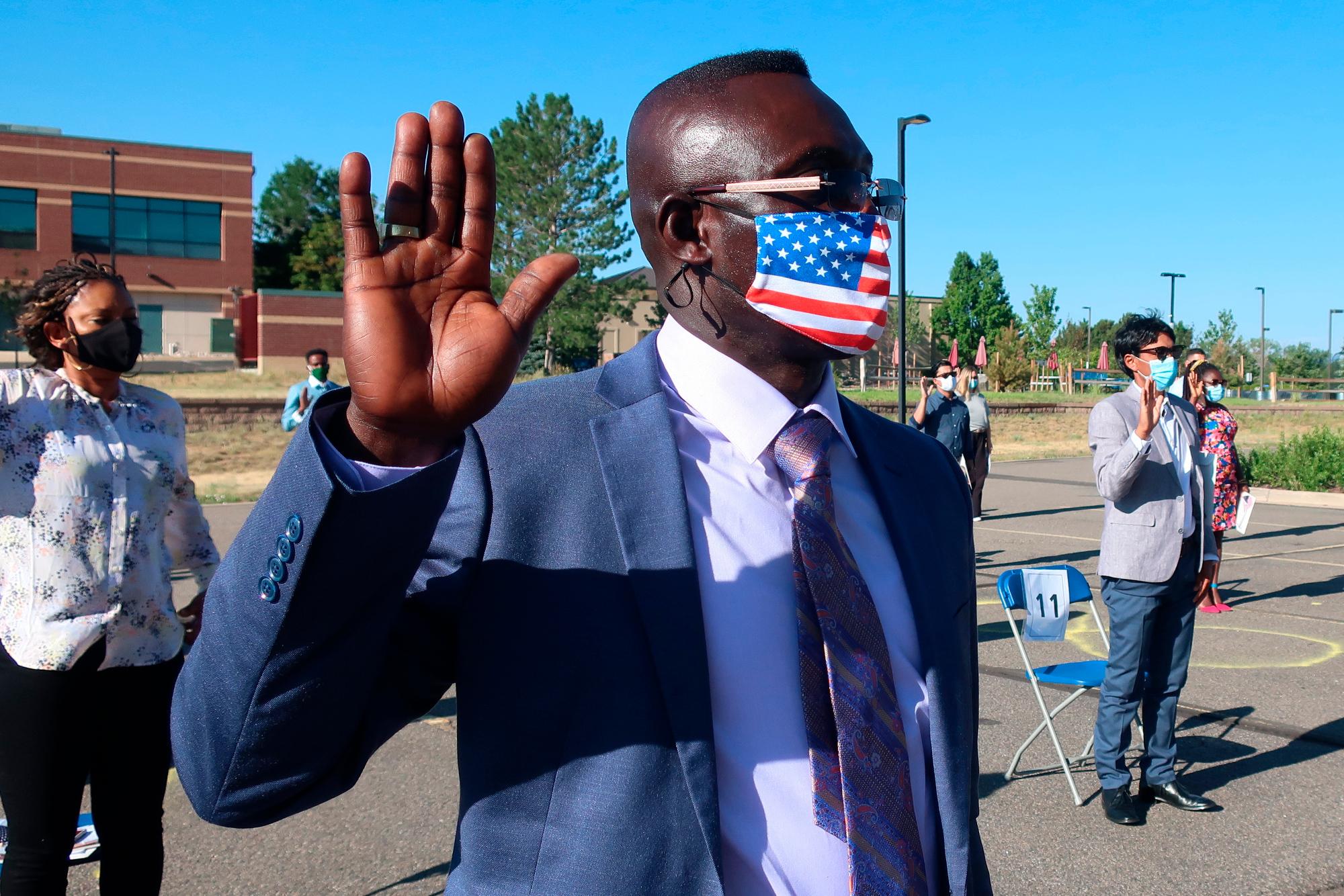
Shutdowns and furloughs at U.S. Citizenship and Immigration Services mean longer wait times for applicants looking to become citizens.
Immigration lawyer Beatriz Lynch said her clients’ progress through the immigration system is taking two to three times longer these days, she said.
“Some of them have waited years to finally have their interview and get their green cards or become citizens and it’s taking a lot longer,” Lynch said. “So you can understand that it’s already a hard enough time and to have this on top, it’s frustrating.”
The USCIS Denver Field office is open after being closed for almost three months due to the pandemic. Dozens of naturalization ceremonies were postponed.
Now, those ceremonies look much different.
Naturalizations usually happen at formal federal courthouses filled to the brim with family and friends. It’s a cheerful, celebratory experience. But because of COVID, USCIS is instructing people to come to their abbreviated open-air ceremonies in the parking lot alone.
“If I knew it was outside, at least my friends could come and stay there in the car, but they couldn’t come,” said Yulia Morozova, originally from Russia.
She was disappointed to not have her support system present on this momentous day.
Around a dozen family members wormed their way into the 8 a.m. ceremony Friday, July 17. They stood yards away from the event with their phone cameras raised to capture the moment from afar.
Thirty-four candidates for citizenship sat in the hot sun outside the USCIS Denver Field Office, their folding chairs positioned six feet apart. They were dressed in suits, colorful headscarves, sharp-looking dresses, and face masks.
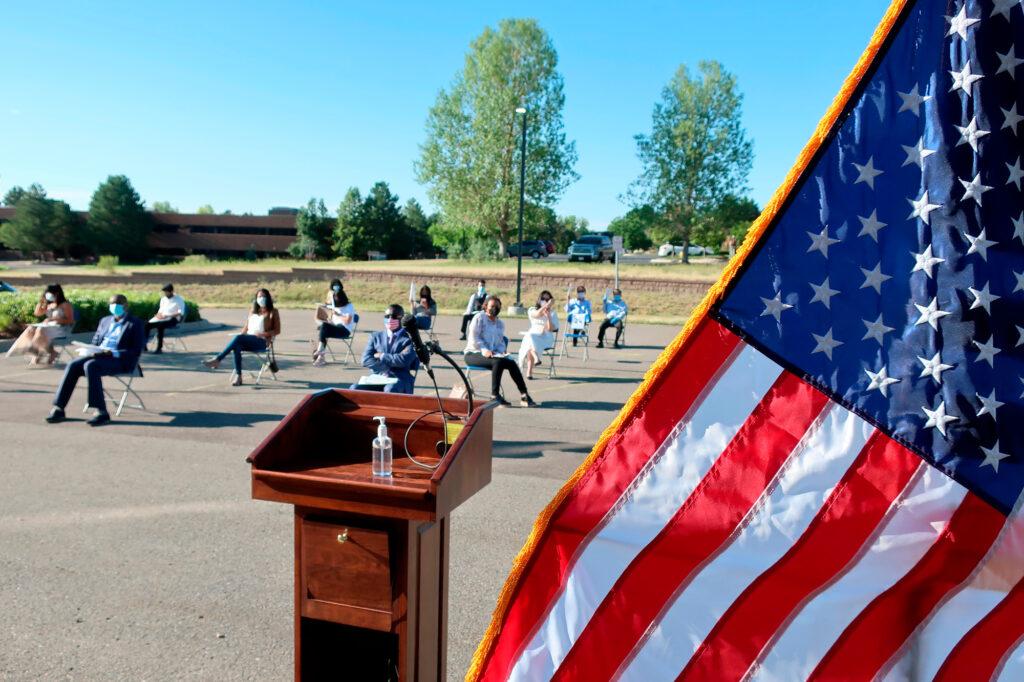
Danny Bui of Vietnam has been working toward becoming a citizen for six years. She got her interview done in February just before COVID-19 shut USCIS down. Typically, new citizens get to take their oath of allegiance in front of a judge as early as the same day they pass their interview, but Bui had to wait until the middle of July. She said she didn’t mind the wait. She is just glad it’s done.
“Today I can say I’m an American,” Bui said.
Morozova said her citizenship also took longer because of COVID-19.
“It is what it is,” she said. “We’re going through a difficult time right now and everything is done differently.”
Morozova first came to the U.S. 25 years ago just after the fall of the Soviet Union to work as a fashion designer for a film actor. She said at that time, Russia was a completely different country.
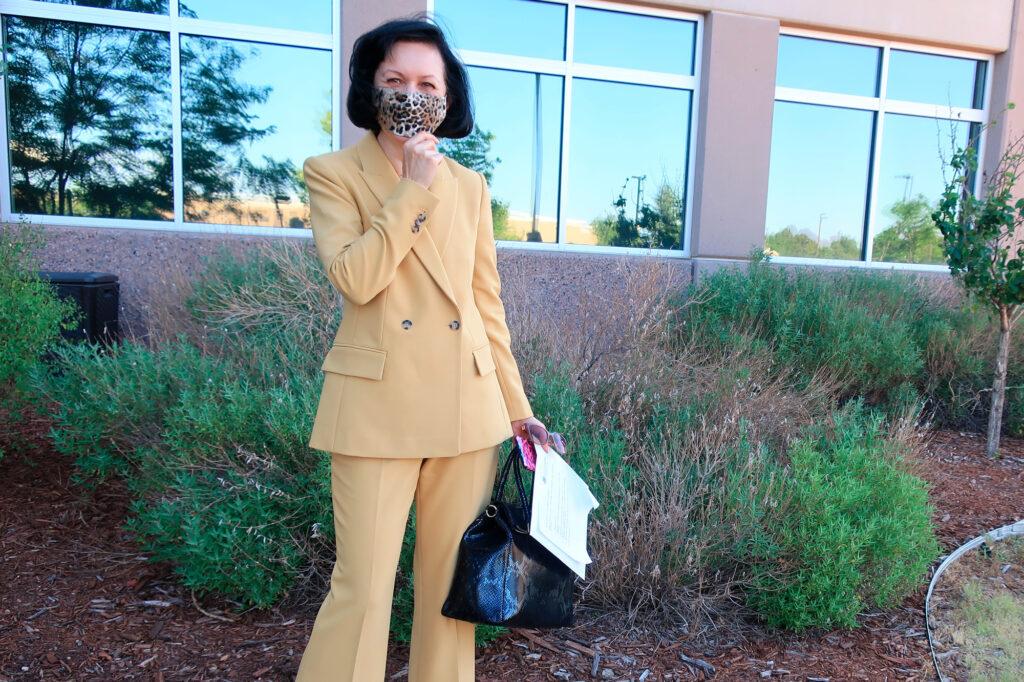
“People sometimes ask me what was my first impression of the United States and I always says, ‘People was smiling,’” she said. “And this is actually what my daughter’s impression was when she was first going back to Russia. She said, ‘Nobody smiles in Russia.’ Maybe do now, but not at that time.”
She said she was happy to come to the U.S. when she got the fashion job offer. She wanted her daughter to grow up somewhere welcoming.
Starting this month, people who’ve done much or all of their naturalization process during the pandemic will become official American citizens in ceremonies much like the one in the parking lot.
Some of Lynch’s clients are at the beginning of the process of getting permanent residency and then eventually citizenship. That’s become harder with COVID too, she said. Denver’s immigration court has postponed these sorts of hearings until August 7th. And there’s a backlog too.
“Most of my clients have very difficult situations and now many have lost their jobs and their not able to find work and if they don’t have a work permit, it’s almost impossible now to be able to find employment,” Lynch said.
Nationwide, more than 13,000 USCIS employees may be furloughed in August, leaving fewer people to process immigration papers. According to a department spokesperson, that’s because USCIS relies on fees it charges to people who are applying, not appropriated funds. They have seen a 50 percent drop in incoming fees since March.
USCIS is asking Congress for $1.2 billion dollars to close a projected budget shortfall because of the COVID-19 pandemic. The department plans to pay the federal government back by adding a 10 percent surcharge to future applications. It already costs more than 700 dollars to apply for citizenship, not counting the cost of a lawyer’s help filling out the complicated document. That cost is a barrier to some potential applicants.
And, the slowdown in citizenship interviews and ceremonies mere months before the November presidential election leaves some worried a portion of potential new citizens won’t be able to vote.
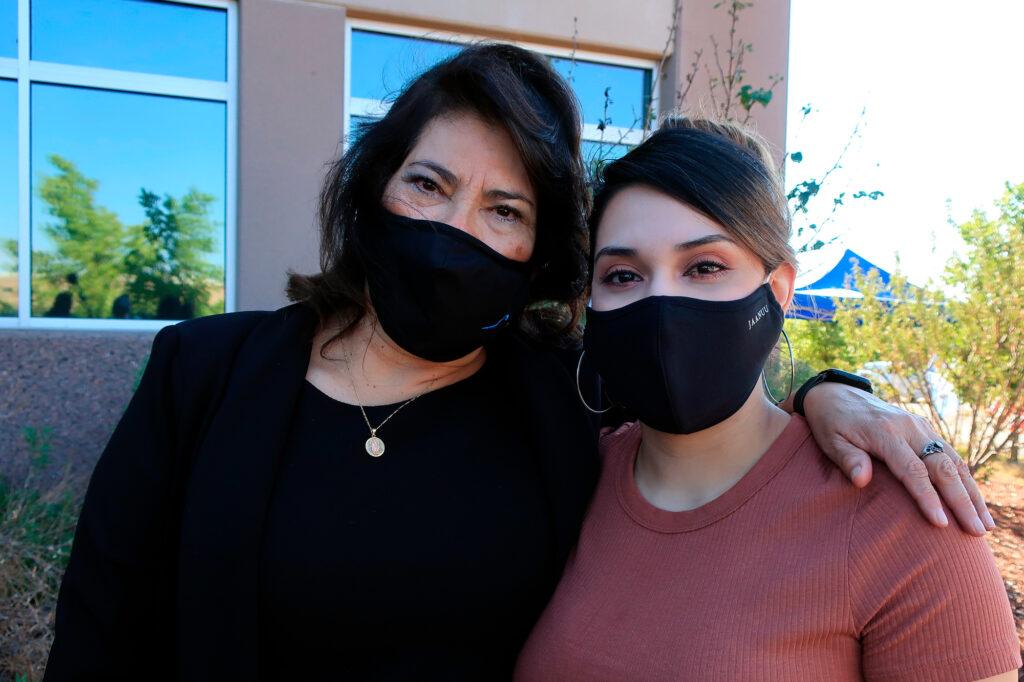
“There are things in my country that I wouldn’t have achieved,” said new citizen Maria Munoz Duarte. “Ten years ago, I wanted to become a citizen, and I was scared. But why wait? And now I’m happy because I’m like my daughters. We’re all citizens. They were born here. All that was missing was me.”
